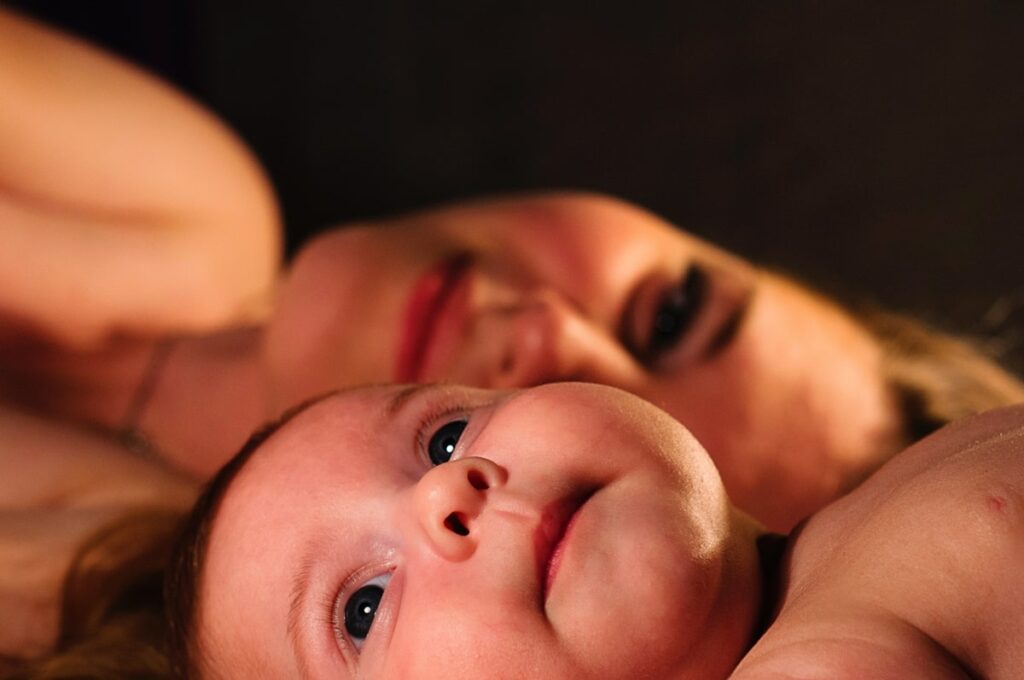“It is increasingly clear that maternal mental health is one of the most crucial determinants of a child’s mental health – which in turn suggests that if we want to improve the emotional health of children in this country we should be focusing on families, not individuals.” – Education Policy Institute
Postnatal depression affects more than 1 in every 10 women within a year of giving birth, and depression in pregnancy (antenatal depression) also affects more than 1 in 10 women. Other mental health symptoms that can occur during or after pregnancy include anxiety, panic attacks and psychosis.
There are a variety of causes of post and antenatal depression, including a history of mental health problems, stressful life events, physical/psychological trauma, a history of mental health problems during pregnancy, having no close family or friends to support you and/or a difficult relationship with your partner.
Even if you do not have any of these, having a baby is a life-changing event that can sometimes trigger depression.

Research also suggests that poverty can increase the likelihood of maternal mental health problems and can also make it more difficult for mothers to access treatment for mental health issues. Not only can poverty, in and of itself, affect parental wellbeing but it can exacerbate the impact of typical causes of post and antenatal depression.
Acutely aware of these impacts, as well as the developmental significance of the first 1001 days in a child’s life (including pregnancy and the first two years), we felt it essential to develop a parenting programme that would enable us to come alongside parents and carers facing disadvantages as early as pregnancy. Our flagship parenting programme (Kids Matter) is for families with children aged 1-10 but there is clear, compelling evidence that what happens in the first 1001 days lays the foundation for every child’s future health, wellbeing, learning and earnings potential.
And so we developed Babies Matter: a 6-week parenting programme for new and expectant parents who are facing disadvantages. Run by a trained peer facilitator, the programme aims to help parents to lay the foundations needed in order to raise their children in a strong family.
What makes our programme unlike many other traditional ante/postnatal support is that the emphasis isn’t just on how to look after a baby but rather takes a bigger picture look at the factors that will influence outcomes for that child, including parental wellbeing and the relationship between those actively involved in parenting, or ‘parenting teammates’ (this might be mum/dad, or for some of the parents it might be another relative who supports them, a grandparent who is particularly active in the baby’s life, or a good friend).
With this in mind, Babies Matter focuses on three areas of family life (‘baby’, ‘me’, and the ‘parenting team’), and has three core aims:
- For parents to increase their parental sensitivity in order to improve attachment and bonding.
- Improve parental wellbeing.
- Strengthen the parenting teammate relationships.
Interwoven into the core programme is material that supports parents in learning how to tune into their baby and what they need, and to be mindful of what their child will be thinking and feeling as they interact with them. In turn, this will help strengthen the attachment and bond between a parent and their baby which gives a solid foundation to then add the building blocks of helping a child to thrive.
Parental wellbeing is linked to the ability to tune into a baby’s needs. In each session of Babies Matter, there is a focus on a practical idea that guests can try to invest in their wellbeing. This ranges from understanding what triggers and releases stress, to practicing gratitude, to how to cope with big emotions that might overwhelm us.
Inextricably linked to parental wellbeing is the relationship between parenting teammates. In 2019, a UK study showed that a fifth of parents who ended their relationship within the first year of parenthood cited communication breakdown as the top reason for relationship breakdown.
Throughout Babies Matter we look at practical ways to strengthen the parenting teammate relationship to help build a secure team that can weather the challenges of the early days of parenthood. This includes how to maintain and improve communication, understanding the changes for our parenting teammate in welcoming a new baby, and even the opportunity to try out a roleplay example of listening well – not something that’s easy with a newborn present.
Maternal mental health is, of course, interwoven into core programme material that supports parents in learning how to tune into their baby and what they need, and to be mindful of what their child will be thinking and feeling as they interact with them. In turn, this will help strengthen the attachment and bond between a parent and their baby which gives a solid foundation to then add the building blocks of helping a child to thrive.
Babies Matter is designed to help create connections, which will equip parents with confidence, competence, and a community of support, to help lay the foundations for every child in need to be raised in a strong family.
If you would like to find out more about running a Babies Matter group in your local community, please contact us on partnership@kidsmatter.org.uk